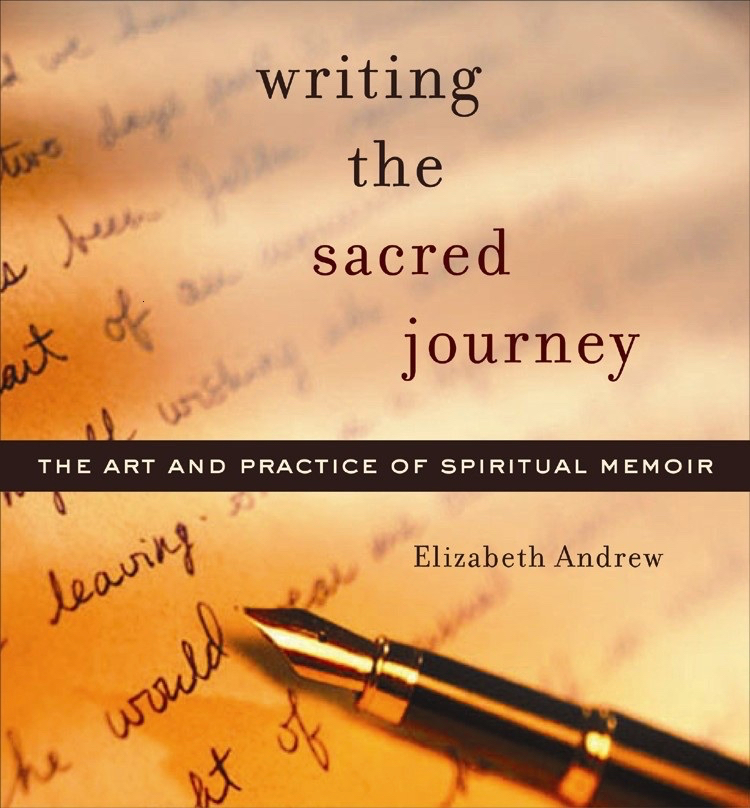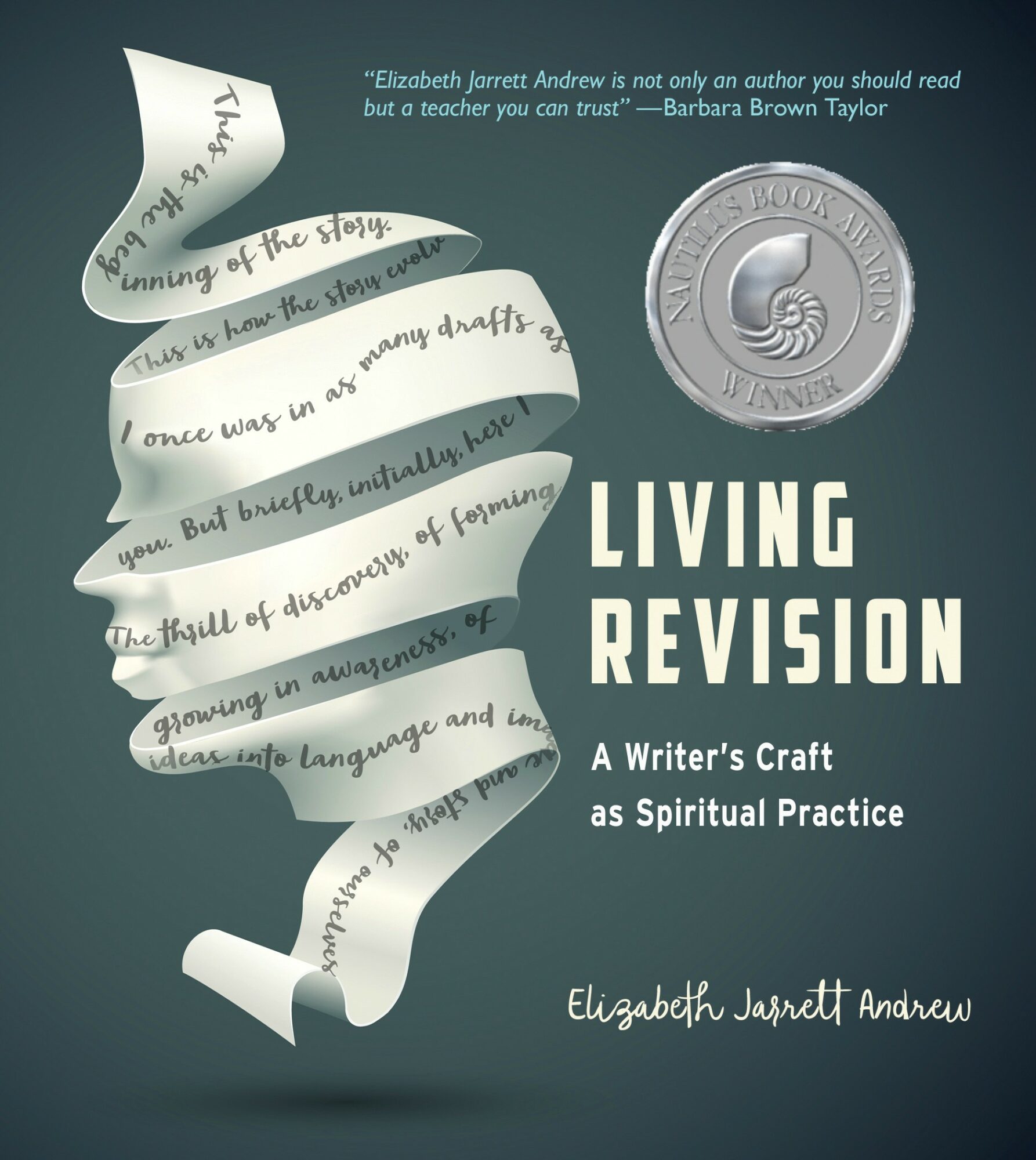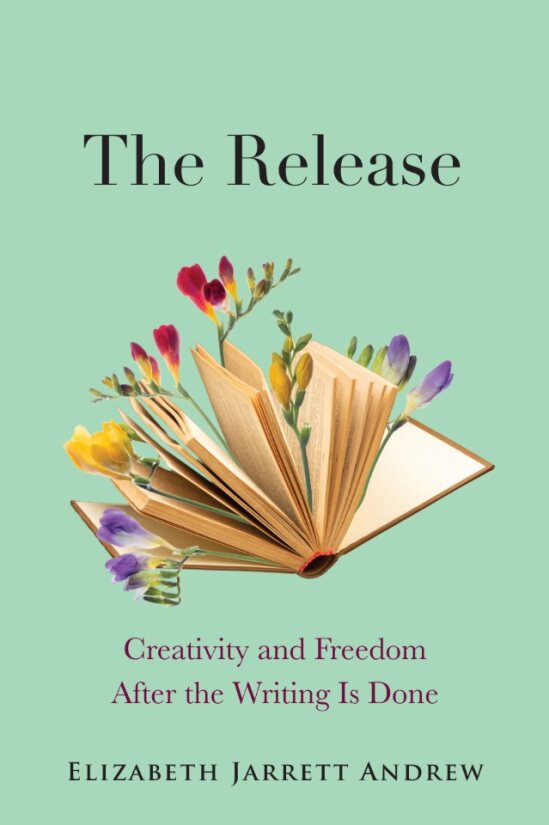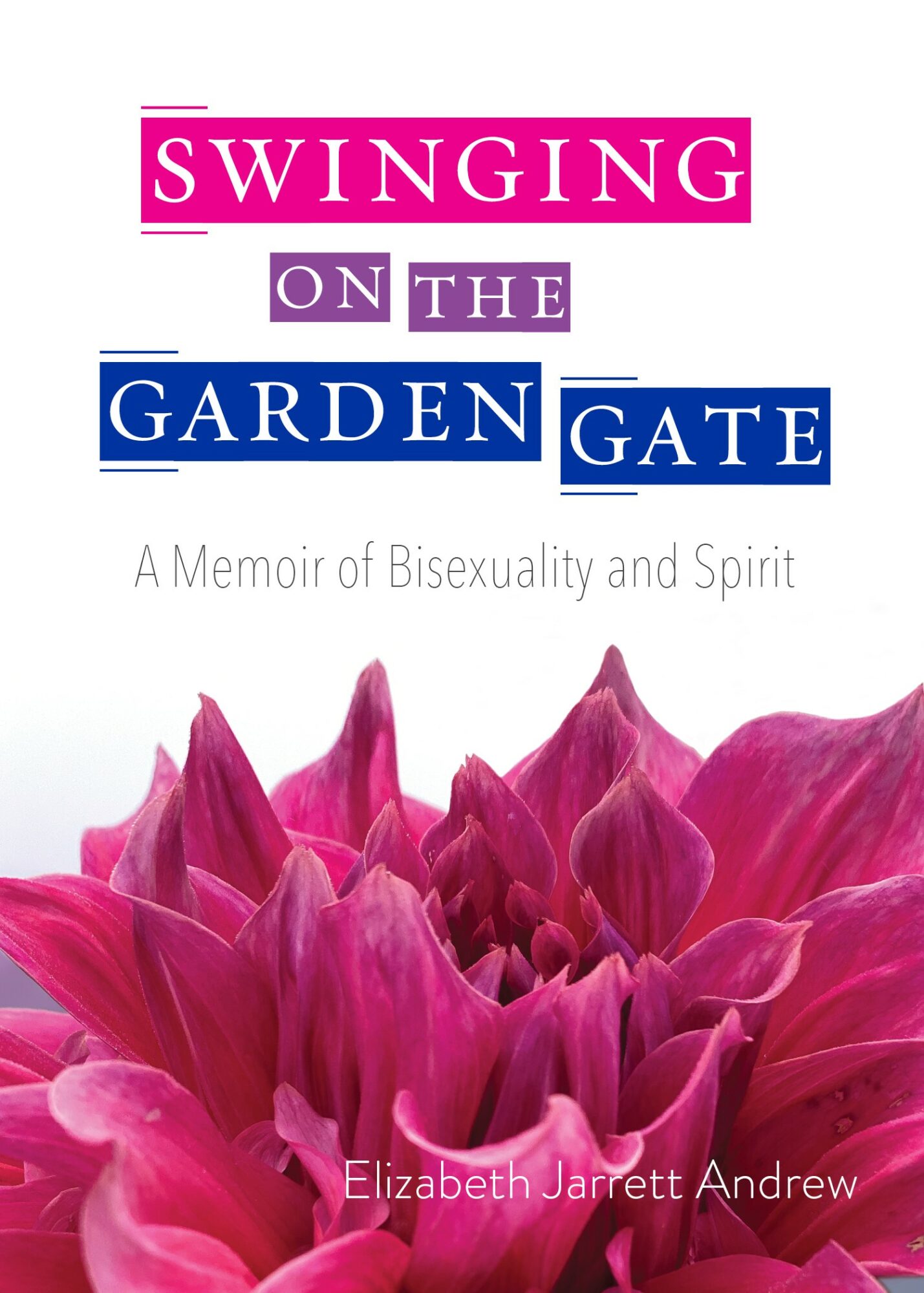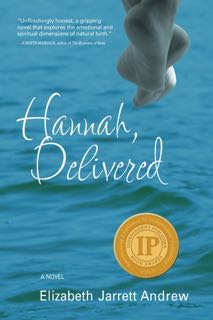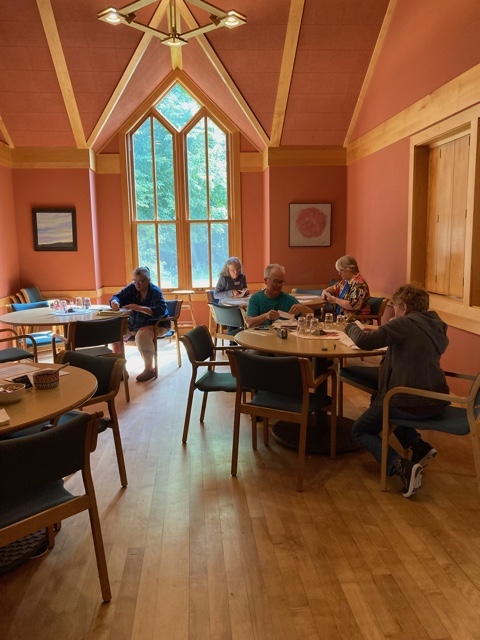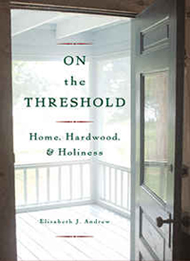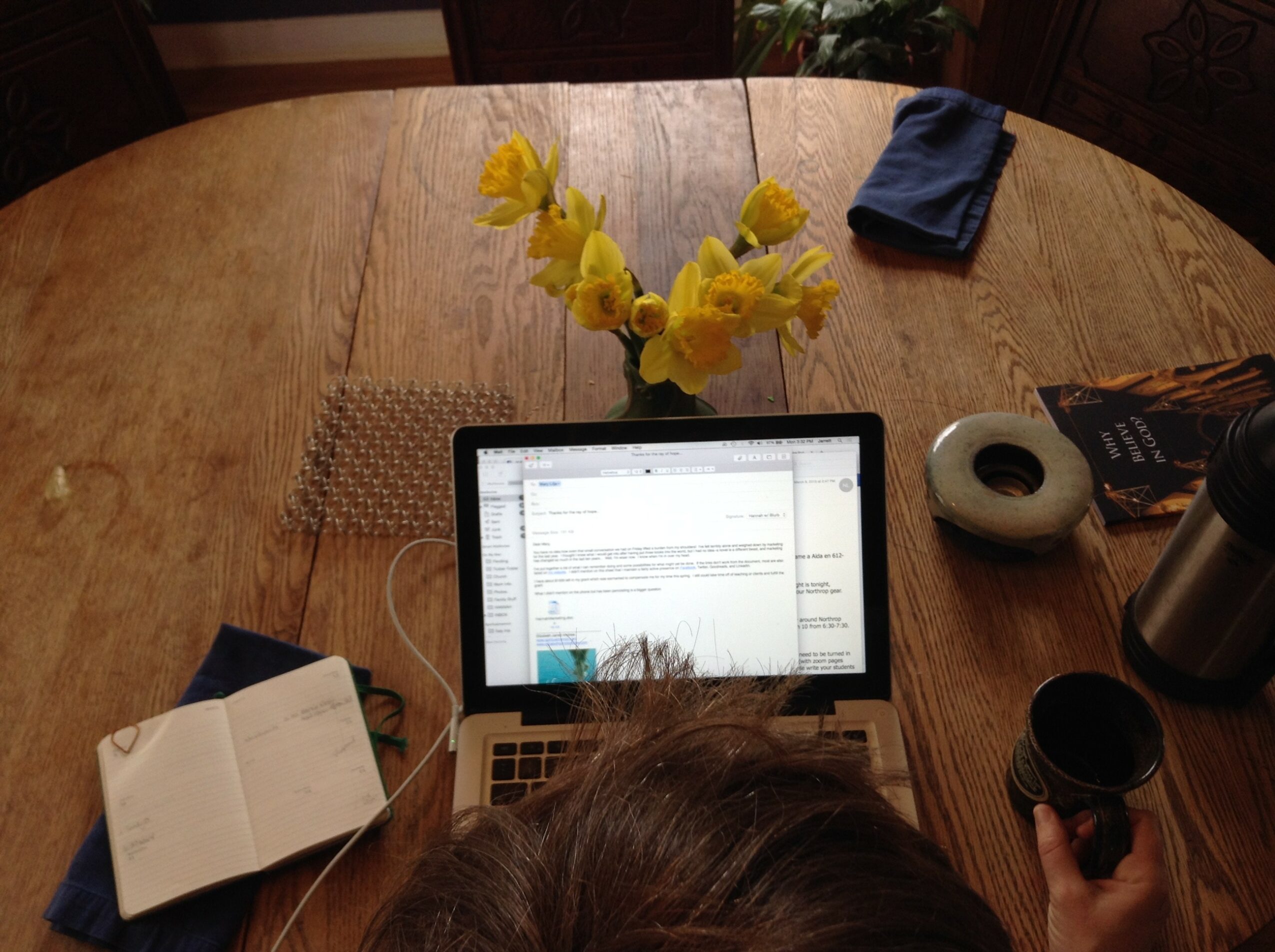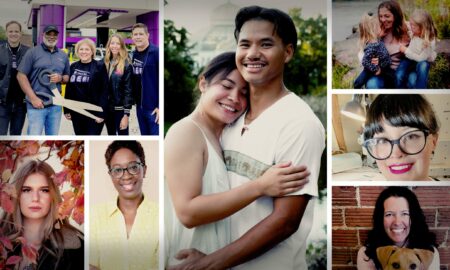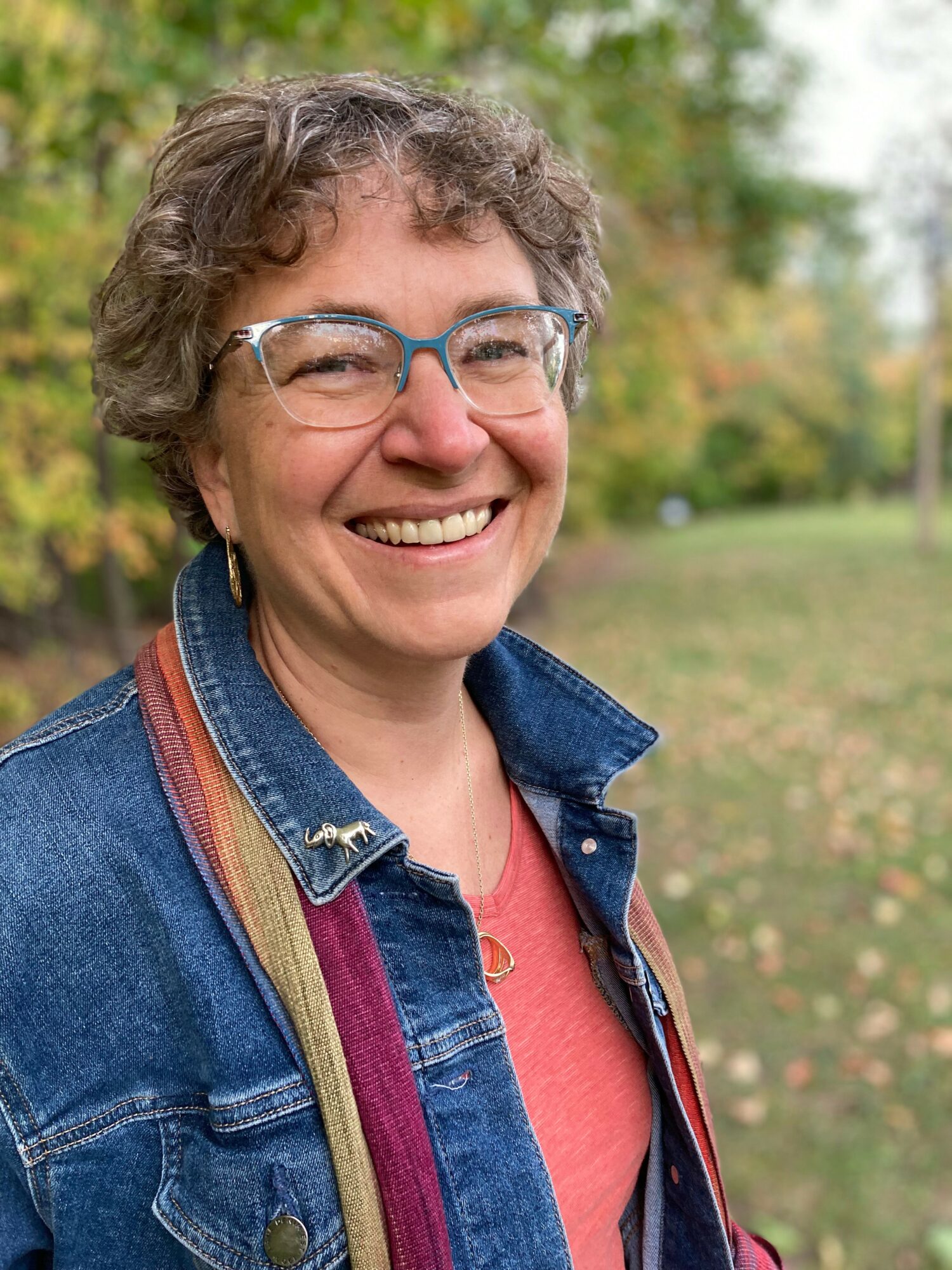

Today we’d like to introduce you to Elizabeth Jarrett Andrew
Hi Elizabeth, can you start by introducing yourself? We’d love to learn more about how you got to where you are today?
I started writing in fourth grade, tented under bedcovers with a flashlight and diary. By high school I would detour from my walk home to sit on a log in the woods scrawling poetry, and during college I was determined to write the next great American novel. From the get-go, writing was sheer joy, discovery, and emergence.
Then in my 20’s I woke up to the perplexity reality that I was attracted to people of all genders–yikes! I didn’t know how to make sense of my body, especially considering the Christianity of my upbringing. Naturally, I wrote a memoir to sort myself out. Eventually SWINGING ON THE GARDEN GATE: A MEMOIR OF BISEXUALITY & SPIRIT was published by Skinner House, the Unitarian press, and I came out in a big way. I’m grateful for how writing supported that journey.
Partway through writing that book, all of my belongings burned in a fire, including twenty years of journals, countless poems, short stories, letters, and drafts. In the grief that followed, I found comfort in keeping a journal. I was amazed; even though a fire could burn through my writing at any moment, the practice itself gave me hope. How? Why? My curiosity about how the act of writing changes the writer led to three books on writing as a transformational practice (WRITING THE SACRED JOURNEY, LIVING REVISION, and THE RELEASE) and countless classes and retreats. Even today, wonder at how creating creates the creator fuels everything I do.
I believe everyone can write. Writing is inherently valuable because of how it changes us. We don’t have to be good at it or publish it to make the writing process worthwhile. I try to host spaces where the commercialism, elitism, and colonialism common to the literary world are replaced with curiosity, kindness, and reverence for process.
James Baldwin said that “the interior life is a real life, and the intangible dreams of people have a tangible effect on the world.” Writing has taught me to listen to this “real life.” In an age where our inner worlds of imagination, spirit, dreams, emotions, and intuition are largely denigrated, writing can keep us connected to the true self and to ultimate mystery. So my work these days helps folks rediscover the sacred dimensions of writing. We can make meaning of our experiences, we can deepen our connections to one another and the earth, we can heal and learn and come more alive. In a way, I want to share what I knew as a kid, that writing is so valuable, it’s worth hiding under the covers with a flashlight or escaping to a quiet spot in the woods to do.
We all face challenges, but looking back would you describe it as a relatively smooth road?
I did an embarrassing face-plant with the publication of my first novel, HANNAH, DELIVERED. The novel itself I’m proud of, but the publishing process tripped me up. I allowed cultural definitions of success to steer me (I wanted to “make it big” with an agent and traditional publisher, I wanted good sales numbers and artistic recognition) and run roughshod over my own values. While on the surface that book did okay, I wound up in the doctor’s office with heart palpitations and on the therapist’s couch with addictive tendencies. Definitely a low point in my career.
Afterward I swore I’d never let that happen again. Writing for me is a spiritual practice; I shouldn’t have to compromise my integrity to launch a novel. So I asked myself some questions: Did I have to be fettered to the whims of my ego or the market economy as I share my work? What would it look like to stay grounded or even flourish in the period post-completion? My answers became my latest book, THE RELEASE: CREATIVITY & FREEDOM AFTER THE WRITING IS DONE.
In the end, that tough experience was a gift. Now I know there are two products that come from writing–what’s on the page and what’s written in my being. Both have value, and both are worth sharing. But we do the most good by staying true to a life-giving practice rather than focusing on the product.
Alright, so let’s switch gears a bit and talk business. What should we know about your work?
I’m super interested in how the writing process is a deep immersion in gift economy, so I created a sampler course to introduce that idea and then a donation-based online community where writers can support one another in tending the mystical dimensions of writing. You can find both on my website and at The Eye of the Heart Center for Creative Contemplation.
I also regularly teach the art and practice of spiritual memoir, offer retreats, coach writers in book development, and host writing circles that honor what’s coming alive in the writer alongside what’s happening on the page. This year I’m leading an interdisciplinary cohort of artists through an in-depth exploration of the role of listening in our art-making–it’s been really tremendous. I also support other teachers to offer classes that plumb the transformational potential of writing.
As for my own creative work, I’m currently in the final stages of writing a middle grade novel inspired by Heart of the Beast’s May Day ceremony. Memoir and personal essays remain my lifeblood, though. And I still journal daily, although out in the open with a cat in my lap and a hot cup of tea on my side-table.
We all have a different way of looking at and defining success. How do you define success?
I’m so glad you ask this! If creative people don’t know our own definition of success, we get sucked into other people’s definitions. This is precisely what tripped me up with my novel.
When I send my daughter off to school in the morning, my only expectations are that she be kind and give school her best effort. Success for me is similar–kindness and my best effort–but also includes other expectations: that I show up fully on the page and in all my interactions; that I listen with and speak from my heart; that I stay humble enough to keep learning; that my connections with others, including readers, are genuine. A good morning of writing for me is one where I’m deeply engaged. I try to keep my sights trained on the means rather than the ends. I’ve found I’m happier that way, and my writing is then more effective.
Contact Info:
- Website: https://www.elizabethjarrettandrew.com
- Instagram: @Elizabethjarrettandrew
- Facebook: https://www.facebook.com/elizabethjarrettandrewpage
- LinkedIn: https://www.linkedin.com/in/elizabeth-jarrett-andrew-085a264/
- Other: www.spiritualmemoir.com, link to the writing community: https://www.eyeoftheheartcenter.org/writing-community
